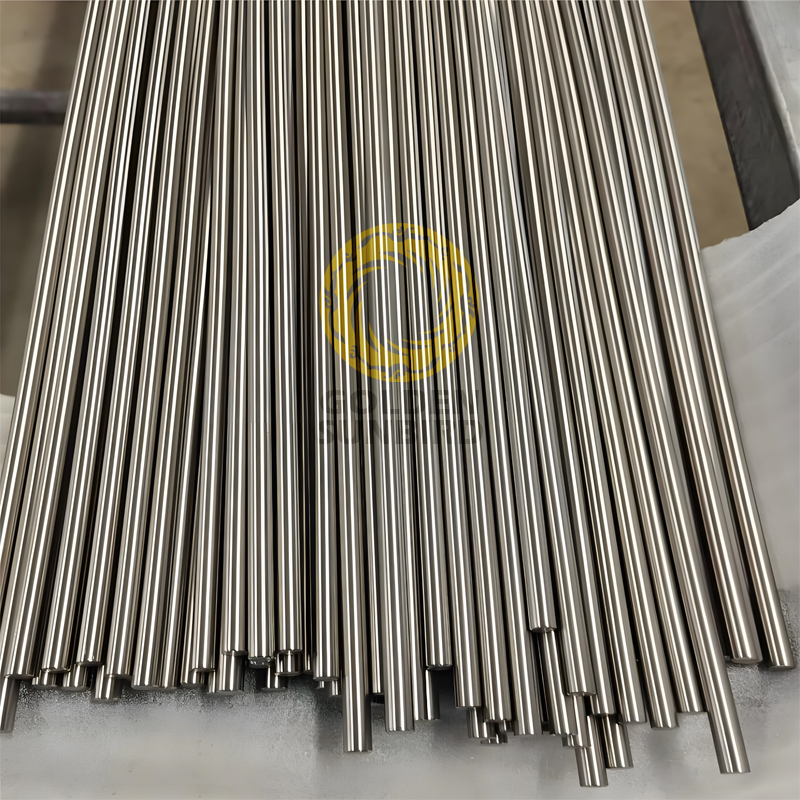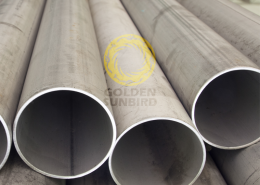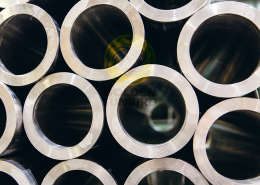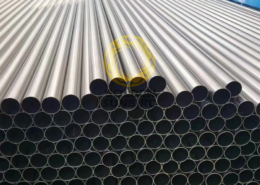ISO 5832-11 Ti6Al7Nb Titanium Alloy Bar for Surgical Implant
- Grade: Ti6Al7Nb
- Biocompatibility
- High Strength and Fatigue Resistance
- Corrosion Resistance
- Low Modulus of Elasticity
- Good Machinability and Fabricability
Features
ISO 5832-11 Ti6Al7Nb Titanium Alloy Bar for surgical implant
ISO 5832-11 Ti6Al7Nb Titanium Alloy Bar Chemical Composition (wt.%)
| Element | Compositional Limits % (m/m) |
| Al | 5.5 to 6.5 |
| Nb | 6.5 to 7.5 |
| Ta | 0.50 max. |
| Fe | 0.25 max. |
| O | 0.20 max. |
| C | 0.08 max. |
| N | 0.05 max. |
| H | 0.009 max. |
| Ti | Balance |
ISO 5832-11 Ti6Al7Nb Titanium Alloy Bar Mechanical Properties in Annealed Condition
| Form of Alloy | Tensile Strength min. MPa |
Proof Stress of non-proportional elongation min. MPa |
Percentage Elongation min. % | Reduction of Area min. % |
| Bar | 900 | 800 | 10 | 25 |
Note: The maximum diameter or thickness for bar form is 100 mm.
Technical Specifications
| Specification | Value |
| Standard | ISO 5832-11 Ti6Al7Nb Titanium Alloy Bar for Surgical Implant |
| Grade | Ti6Al7Nb |
| Type | Bar |
| Dimension | Bar—Round bars and flats from 5.50 to 94.0 mm [0.218 to 3.70 in.] in diameter or thickness (other sizes or shapes by special order). |
| Density | 4.51g/cm³ |
| Inspection Certificate | EN 10204 Type 3.1 (Mill Test Certificate), EN 10204 Type 3.2 (Witness Testing or 3rd Party Inspection) |
| Tests | Chemical Composition, Microstructure Examination ISO 20160, Tensile Test ISO 6892-1 |
Key Features
High Strength: Excellent mechanical properties.
Corrosion Resistance: Superior resistance to various forms of corrosion, especially in biomedical environments.
Biocompatibility: Safe for medical implants, commonly used in orthopedic and dental applications.
Low Elastic Modulus: Similar to human bone, reducing stress shielding in implants.
Thermal Stability: Maintains properties at high temperatures.
Packing
Packed in plywood boxes.
Application
Orthopedic Implants: Used in hip and knee replacements, bone plates, and screws due to its biocompatibility and mechanical strength.
Dental Implants: Ideal for dental prosthetics and implants because of their corrosion resistance and compatibility with human tissue.
Spinal Fixation Devices: Provides support and stability for spinal surgeries.
Craniofacial Implants: Suitable for reconstructive surgeries due to their low elastic modulus and high fatigue strength.
Aerospace Components: Employed in high-performance parts requiring strength and corrosion resistance.
Surgical Instruments: Utilized to make durable and lightweight surgical tools.








